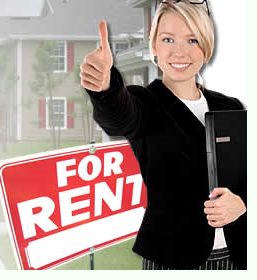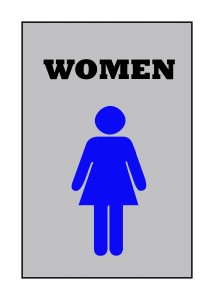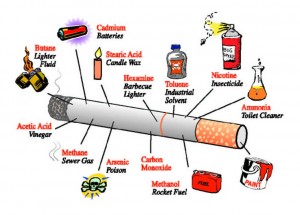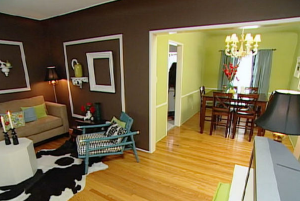Posted by Teresa on July 25, 2013 under Landlord Tips, Screening and Background Checks | 
 Smart landlords and property managers do a very thorough job of screening tenant applicants. They check references and work places, former landlords and addresses. And of course, they have a background check and tenant credit check done.
Smart landlords and property managers do a very thorough job of screening tenant applicants. They check references and work places, former landlords and addresses. And of course, they have a background check and tenant credit check done.
But how many of your prospective tenants are checking YOU out? And what do you need to do to ensure you’re attracting the type of tenant you want—who will be as choosy about you as you are about them? After all, if you each choose the other, the landlord-tenant relationship will have a better chance of success!
What Great Tenants Look for in a Landlord:
- Professional behavior and associations. Tenants want landlords who are professional businesspeople. Who take their business seriously enough to belong to professional associations. If you belong to your local apartment association, the National Association of Residential Property Managers, or other group, say so on your website!
- Organization: Tenants are impressed when paperwork is ready to be signed, and when processes are documented. Do you have lease applications, background check authorizations, receipts, leases, move-in and move-out lists, emergency contact information and other forms ready to go at all times? Or are you fumbling around looking for forms? It never looks good to tell a prospect that you’ll need to get back to them for necessary paperwork.
- Great reputation: People will talk, and if your applicant asks current or former tenants about you, what will they hear?
- Reliability: Are your leasing office phones answered promptly? Even if you’re a one-person operation, it matters. If you miss calls, do you return them right away? Can tenants count on you to be available when they need you?
- Honesty: Be truthful at all times, even if that means pointing out issues with the rental apartment or house. Better that prospects know up front and make an informed decision, than starting out the relationship on a negative note.
- Communication: As in every relationship, it comes down to communication. If your skills are sub-par, good tenants will know it.
You may not realize that tenant applicants are checking you out, but it never hurts to put your best foot forward, just in case!
Posted by Teresa on June 28, 2013 under Lease and Rental Agreements, Rents and Deposits | 
 In many areas of the country, rental vacancies are very low; some are at all-time lows. But that’s not the case in every market. If you’re a landlord or property manager with no available units for lease and a waiting list, you don’t need to worry about whether or not to negotiate the rent. But for those of you who have vacancies to fill, should you be considering it?
In many areas of the country, rental vacancies are very low; some are at all-time lows. But that’s not the case in every market. If you’re a landlord or property manager with no available units for lease and a waiting list, you don’t need to worry about whether or not to negotiate the rent. But for those of you who have vacancies to fill, should you be considering it?
Here are some tips for knowing when it might pay to negotiate the rent:
When you’re in a renter’s market. When local economic conditions are such that vacancies are high and demand is low, that’s a renter’s market. Savvy tenants will read the signs: units staying vacant for months, several open units in the same complex or building, and landlords who seem anxious to get a lease signed.
Your tenants moved out months ago. If you have several empty apartment units, or your rental home has been empty for more than a month, it’s probably time to consider negotiating with prospective tenants. Losing a month’s rent for too long can be difficult to make up.
You don’t have other perks or amenities to offer. When attempting to attract new tenants, landlords often waive certain fees or pay for a tenant’s Internet service for several months. If you can’t offer other perks, then rent may be your only place to negotiate and bring a tenant to the table.
You have a high-quality applicant. When you have a tenant who meets your income requirements, passed your tenant screening with flying colors, has a steady job and gets rave reviews from former landlords, it might pay to negotiate on the rent. And if that applicant is willing to sign a long-term lease—such as two years—you might regret not reducing the rent if it’s a deal breaker.
Your unit is overpriced. If your tenant has done her homework, she’ll know what comparable units are going for in your area. If she can walk away and rent another place for less money, you might find it difficult to get a good tenant in your building without matching—or at least coming close to—comparable units.
And don’t forget that in negotiation, you also get to ask for what you want. For example, in exchange for lowering the rent, you might get your tenant to agree to pay before the first of the month, or to pay the first few months up front. You could ask for an 18- or 24-month lease. Or, you could ask the tenant to accelerate his move-in date.
Posted by Teresa on June 19, 2013 under Landlord Tips, Tenant Credit Checks | 
 Have you been thinking about becoming a landlord? Do you think you have what it takes to be a successful one? Despite the rise in home prices over the past couple of years, it could still be a great time to purchase investment property in your neck of the woods. Mortgage rates remain at historic lows, and some bargains are still out there.
Have you been thinking about becoming a landlord? Do you think you have what it takes to be a successful one? Despite the rise in home prices over the past couple of years, it could still be a great time to purchase investment property in your neck of the woods. Mortgage rates remain at historic lows, and some bargains are still out there.
New landlords are typically new investors, but the club also includes folks who’ve had a hard time selling their homes, who are turning to renting to keep the mortgage paid. And while there are plenty of resources out there for newbies, the advice of seasoned landlords can be priceless.
Here’s a compilation of what it takes to be a successful landlord, as provided by our clients over the years:
Business acumen: Treating the landlording business like a hobby is a mistake. It’s a business, in which you are trying to make money. Never forget that. Be professional. Keep excellent records. Maintain procedures and follow them. Pay for professional tax and legal advice.
Toughness: You’ll have to enforce your rules in every situation, with every tenant or prospective tenant. At times, tenants will appeal to your softer side, asking for leniency, extensions on the rent or other favors. And you’ll have to be tough.
Patience: On the other hand, you’ll be dealing with people, not numbers. Being patient (and even kind) while enforcing your rules will go a long way to establishing a good rapport with your tenants. You’ll also need patience when your phone rings at 2 a.m., when a tenant stops up the sink for the fourth time and when your landscaping crew cuts back the wrong tree.
Outgoing personality: You don’t need to be s total extrovert or comedian to be a successful landlord. But you should be good at dealing with people, able to confront or engage them as the situation warrants, and ready to smile—even when you don’t feel like it. Remember, your tenants are your customers. A pleasant demeanor will go a long way.
Consistency: Some landlords apply the rules according to the tenant or prospective tenant. For example, Tenant A’s kids are allowed to have huge float toys in the pool because you like them better than Tenant B’s kids. Or, the nicely dressed white female prospective tenant does not have to undergo a tenant credit check, but the casually dressed minority male applicant does. The first scenario could make for upset tenants; the second could have you accused of discrimination. Be consistent with all of your rules, in every situation, for every tenant.
The ability to say “no”: You have certain obligations to your tenants, including safe housing, heat, water, trash pickup and functioning plumbing. Depending on the terms of the lease, you may also be obligated to provide Internet, cable TV, air conditioning or a clean swimming pool.
You are not obligated to provide housing to people who don’t meet your minimum requirements for credit history, income or employment. You’re not obligated to allow a tenant to rescue a kitten if you’ve a no-pets policy. And, you’re under no obligation to finance your tenants’ housing. You provide the housing, and they pay you. On time. You’re within your rights to say “no” to any and all other requests—and if you have a hard time saying “no,” you might not be cut out for the landlording business.
Posted by Teresa on February 22, 2013 under Landlord Tips, Lease and Rental Agreements | 
 Experienced landlords know: anything can happen in the rental business. Natural disasters strike, vandals damage property, fires break out and thieves are everywhere.
Experienced landlords know: anything can happen in the rental business. Natural disasters strike, vandals damage property, fires break out and thieves are everywhere.
Of course, rental property owners carry insurance protection on their properties to protect themselves from liability and loss. Most policies cover damages and accidents that occur on the property, but not the tenants’ possessions.
Tenant’s insurance, or renter’s insurance, covers personal property in a rental home or apartment against fire, theft, water damage (but not flooding) and vandalism. It also protects tenants in the event that someone is injured in their unit.
It’s a good idea for tenants to buy an insurance policy, but can landlords require it? Absolutely! In fact, many do and for good reasons:
- Tenants with renter’s insurance will be less likely to try to sue the landlord in the event of a loss or injury, since they have their own coverage.
- Renter’s insurance can protect rental property from tenants’ misuse or negligence. For example, if a tenant floods the unit, his or her insurance will pay for the cleanup. Those without renter’s insurance could just move out and leave the mess for the landlord to deal with.
- Having tenants with their own insurance can help landlords avoid claims on their own policies.
- Renter’s insurance can protect tenants and landlords against claims in case of dog bites from tenants’ pets. The renter’s policy can cover the claim, so the injured party is less likely to sue the landlord.
- The peace of mind in knowing your tenants are covered in case of a fire or other disaster can be worth its weight in gold. Insurance proceeds can replace clothing, furniture and other necessities, as well as pay for living expenses in case tenants have to temporarily relocate.
If you do require renter’s insurance, make sure it is clearly explained in the lease agreement. It’s also a good idea to be named as a secondary insured, so you can be notified of lapses in coverage.
The cost of renter’s insurance is often less than $20 per month. If you have prospective tenants who balk at the insurance requirement, perhaps they are not qualified to live in your properties!
Posted by Teresa on January 31, 2013 under Rental Market | 
 After the housing crash, more renters were created. As the housing and job markets recover, will most of these new renters become homeowners? Maybe not. Many factors that moved people into homeownership have changed since the economy collapsed, and the trends show that the rental market will continue to be strong—and fueled by women—for the foreseeable future.
After the housing crash, more renters were created. As the housing and job markets recover, will most of these new renters become homeowners? Maybe not. Many factors that moved people into homeownership have changed since the economy collapsed, and the trends show that the rental market will continue to be strong—and fueled by women—for the foreseeable future.
Why women? Specifically, single women, according to economists. It all comes down to education, marriage and children. Back in 2000, the number of men and women in college was pretty even; today, there are three million more women in college classrooms, and four million more female college graduates in the workforce. Women over 25 are having a harder time finding educated men to settle down with.
Therefore, women are putting off marriage, children and home ownership. They don’t need three bedrooms, two baths and a yard when they’re single and childless. And even women with children are more likely to be single these days—and they also prefer renting in-city apartments to buying or renting single-family homes.
More than ever, women are driving the rental market. They like renting a nice apartment in a neighborhood they wouldn’t necessarily be able afford to buy a home in. Rentals come with lawn care and maintenance, and in many apartment buildings, gym facilities and other amenities women want.
Studies show that renter household formation is the strongest it’s been in decades. Most landlords and property managers simply aren’t seeing a big push of tenants becoming homeowners. And with 23 million young adults under 35 living at home with their parents, it’s likely that s job growth improves, millions of new renters will enter the market, increasing demand, lowering vacancies and causing rents to rise.
Remember, women want safety and security in their housing. That’s why it’s more important than ever to consistently conduct tenant screening on every applicant before signing a lease. You need to know whether the name on the application is really the person you’re leasing to, as well as if there is any criminal activity in his or her background. Screen for acceptable credit scores, too, so you know you’re leasing to the best possible tenant.
Posted by Teresa on January 3, 2013 under Landlord Tips | 
 If you’re a landlord, you know there are some drawbacks to the business, like tenants who don’t pay rent on time, problems with noise and tenants who don’t take proper care of your property. It’s true that at times, your phone rings late at night with tenants’ plumbing and heating emergencies. And it’s true that some tenants must be evicted, which can cost you a bundle of time and money.
If you’re a landlord, you know there are some drawbacks to the business, like tenants who don’t pay rent on time, problems with noise and tenants who don’t take proper care of your property. It’s true that at times, your phone rings late at night with tenants’ plumbing and heating emergencies. And it’s true that some tenants must be evicted, which can cost you a bundle of time and money.
All of these problems will probably occur to most landlords at some point. But what could make each of these tenant problems worse? If they were happening in the same building in which you live! Messy, noisy tenants are one thing, but when they live next door, it’s a bigger nightmare. Tenants who constantly pay rent late are even harder to be nice to when they live downstairs from you.
Having tenants for neighbors can be unpleasant, but for many landlords, it’s a way of life. When you own a multi-unit building and have to live somewhere, why not live in your own property?
Here are some pros and cons of being a live-in landlord:
Pros
- You can keep an eye on tenant behavior, and put a stop to things like criminal activity, a business running out of the unit, or actions that are in violation of the lease.
- If the property needs any exterior repairs, you’ll know immediately.
- Undesirable tenants may keep looking when they hear you live in the building.
- You’ll care more about the property and take better care of it.
- Your tenants are not far away when it’s time to collect rent—and they can’t hide from you.
- Communication might be easier when you see your tenants on a regular basis.
- You can take advantage of owner-occupied mortgages, insurance policies, etc.
- You can subsidize your own housing costs.
Cons
- Tenants might knock on your door at all hours to complain or report a problem.
- Noisy tenants will affect your peace and quiet.
- It’s harder to live next to a tenant with whom you have issues.
- If a tenant locks him or herself out, they’ll be knocking on your door.
- Shared areas might not be maintained to your liking.
- Not all expenses are tax deductible.*
Live-in landlord situations can be successful, if both parties work toward it. Be sure to keep the communication flowing, respect your tenants’ privacy and address little issues before they become big problems.
*Disclaimer:
The contents of this article are intended for general information purposes only, and should not be relied upon as a substitute for obtaining legal, investment or tax advice applicable to your situation.
Posted by Teresa on December 7, 2012 under Landlord Tips, Legal | 
 The trend in rental properties is definitely swinging toward smoke-free. Tenants are demanding it, an landlords are seeing that the liability and costs associated with smoking inside rental properties makes it difficult to keep allowing it.
The trend in rental properties is definitely swinging toward smoke-free. Tenants are demanding it, an landlords are seeing that the liability and costs associated with smoking inside rental properties makes it difficult to keep allowing it.
Many tenants are sensitive to cigarette smoke. Even if you thoroughly clean the unit, paint, replace carpets and change out the blinds, some tenants will still smell the odor of the previous tenant’s smoke. It just doesn’t make for a pleasant living situation, and you could lose a good tenant over it.
Old cigarette smoke is a health risk, too. Particulates in the exhaled smoke stay around for longer than you might think. They are in the dust floating around in the air; they settle in cracks and crevices; and they set the stage for long-term health problems—particularly for children and individuals with lung or breathing issues, such as asthmatics. New studies show that it’s not just second-hand smoke that is potentially harmful. In other words, you don’t have to directly breathe in someone else’s smoke to be harmed—you could be in a room today that someone smoked in yesterday, and still be affected.
A study a couple of years ago focused on 5,000 children who lived in smoke-free residences, both detached and multi-family. It found that overall, 73% of the children were still exposed to tobacco—but those who lived in apartment buildings had much higher instances of nicotine in their blood (84.5%, compared to 70% of kids in detached homes).
The poisons and chemicals in tobacco smoke linger. They travel down hallways, and through ducting and shared walls. The long-term affects on children and other vulnerable populations are not known now. But do you want to be partly responsible for a child’s future health problems? Turning your rental apartments into smoke-free housing is good for everyone—your current tenants, your future tenants and their children, who are the most innocent victims of other people’s smoking habits.
Posted by Teresa on November 30, 2012 under Housing Trends, Landlord and Tenant FAQs | 
 Do you furnish your rental properties or have you ever considered it? What are the advantages and disadvantages? We’ve looked around and found that while the vast majority of landlords rent their properties without furnishings, some find that doing so gives them an advantage for a niche that works.
Do you furnish your rental properties or have you ever considered it? What are the advantages and disadvantages? We’ve looked around and found that while the vast majority of landlords rent their properties without furnishings, some find that doing so gives them an advantage for a niche that works.
Advantages of furnished rentals:
• Higher rent: In some areas, furnishing a rental property can as much as double the rent.
• Higher-end tenant: With the right location, amenities and furnishings, you could attract a higher-end tenant, such as relocating executives or long-term vacationers with money to spend on a nice place.
• You’re covered: Security deposits don’t usually include the value of the furnishings (that would be cost prohibitive for most tenants), but in case anything is damaged or needs to be replaced, your insurance policy should cover it. Check with your agent.
Disadvantages of furnished rentals:
• More headaches in the maintenance department. You’ll need to add cleaning, repairing and replacing furniture to your maintenance list.
• Inventory troubles: Documenting the condition of furnishings at move in and move out times will be added work. Consider that many furnished rentals also include dishes, kitchen tools and silverware, and you can see that keeping inventory could be tedious. More stuff means more things to go missing, too.
• Short-term tenants. Folks who are looking for furnished apartments are not usually long-term lease signers. They’re often starting a new job in a new place, starting over in their personal lives, or in a temporary living situation due to an emergency.
As with anything, if you invest too little in your furnishings, you’ll probably have to replace them more often. On the other hand, it doesn’t make sense to spend a lot on furniture, electronics and lighting that could be subject to abuse. Think about your target market. If you’re going for lower-income tenants, you won’t be able to afford expensive furnishings. If you’re targeting executive, vacation or high-end tenants, they will expect nice furnishings—and be willing to pay for them.
If you’d like to gauge the demand for furnished rentals in your area, talk to local real estate agents. They often specialize in corporate relocations, or could refer tenants who are buying in the area but haven’t found the right property yet.
Start your tenant relationship off right by knowing who you’re leasing to. Protect your rental property and assets with tenant background checks. Proper tenant screening will ensure you are leasing to the best possible tenants.
Posted by Teresa on November 28, 2012 under Landlord Tips | 
 You may not realize it, but you could be facing competition from an unknown entity. All over the country, scam artists are posing as landlords of buildings they don’t even own and preying on unsuspecting would-be tenants. One elderly woman in Maryland lost $5,000 to con artists.
You may not realize it, but you could be facing competition from an unknown entity. All over the country, scam artists are posing as landlords of buildings they don’t even own and preying on unsuspecting would-be tenants. One elderly woman in Maryland lost $5,000 to con artists.
In a tight rental market, people are more anxious about finding affordable rental housing. Scammers take advantage of their desperation—and willingness to let their guard down—to steal thousands of dollars that victims think is going to pay rent and security deposits. Soon, they discover that the “landlord” to whom they handed over their money is nowhere to be found. Typically, they have little recourse for recovering their funds or getting justice. The phony landlords simply vanish into thin air.
Scammers like this affect everyone. Most tenants have limited funds for rent and security deposits—so, when that money is gone, it won’t be replaced for months. Legitimate landlords miss out on the chance to lease to new tenants, and the victims are left scrambling to secure new housing—or become homeless.
How can this scam happen? Con artists search for homes for sale or rent online, and copy the information and photos to create “For Rent” listings on Craigslist and other websites, using their own contact information. When someone inquires, they say they are relocating and need to immediately rent out their home. If the house is for sale, they tell interested parties to ignore the sign in the front yard—they’ll be taking it down soon. Some even find ways to change the locks on the house so they can show it to unsuspecting victims. Others tell tenants they will get the keys after the security deposit is received.
These con artists are creative and convincing. It might be hard to understand how anyone could fall for a scam like this, but they do. Maybe some of your tenant applicants have fallen for these scams. Or maybe they’re getting ready to. As a responsible landlord, you can help prevent these con artists from getting away with their schemes—and help your future tenants save money so they can rent from you!
First, check Craigslist in your area to see if any of your rental properties are showing up under phony listings. And, when showing your rental properties or talking to applicants, be sure to mention that there are scam artists out there. If they are considering other properties, let them know that they need to do their due diligence:
• If there is a For Sale sign out front, call the agent on the sign and ask if the home is for rent.
• Never mail a security deposit to a random address or PO Box if you haven’t met the landlord and determined that they do indeed own the property.
• Check public records to see who owns the property.
• If the rent seems too good to be true, it probably is.
• If the “landlord” is in a hurry or pushing hard for a rent check or security deposit, something is probably wrong.
Going to a little extra effort could help stop these con artists from victimizing another innocent would-be tenant, so they can rent from you!
Posted by Teresa on October 12, 2012 under Landlord Tips, Lease and Rental Agreements | 
 If you own a property and aren’t interested in renting it out for the long term, there are plenty of potential shorter-term tenants that could be a good fit for your needs.
If you own a property and aren’t interested in renting it out for the long term, there are plenty of potential shorter-term tenants that could be a good fit for your needs.
Consider the following:
- Older people who are retiring and want to rent in an area for a few months before deciding where to live.
- Professionals who fell victim to the housing bubble and lost their houses. Many of these people took a hit to their credit, and need to rent until they can get their finances back in order.
- Career-changers who have moved to an area for a new job and wish to buy, but need short-term housing while they look for a house.
- People who are downsizing or upsizing and have recently sold a house, but haven’t found a new one that works.
- People in transition—whether it’s because of a divorce, illness, death of a spouse or something else. They may not be in a position to make a long-term commitment, but a three- or six-month lease works.
- Adult children of elderly parents who need to live nearby to care for them on a temporary basis.
Certainly, most landlords prefer to have long-term tenants to keep wear and tear down and decrease the hassles of finding new tenants. But if you have a rental property that’s empty, that you may be selling, or that you might move into yourself, there are good tenants out there who need a short-term lease.
With the right kind of homework and some advertising, you can find short-term tenants. Take a look at Craigslist’s “housing wanted” section. And post your listing in the “sublets and temporary” section, with a prominent “short-term welcome” in the heading. Try posting flyers in nearby coffee shops, co-ops and grocery stores.
Be sure to conduct tenant screening on all applicants. Even though the lease is only for the short term, you still need to be sure that your tenant is who they say they are, have adequate credit and income to cover rent and no criminal activity in their backgrounds that could pose a threat.
 Smart landlords and property managers do a very thorough job of screening tenant applicants. They check references and work places, former landlords and addresses. And of course, they have a background check and tenant credit check done.
Smart landlords and property managers do a very thorough job of screening tenant applicants. They check references and work places, former landlords and addresses. And of course, they have a background check and tenant credit check done.








